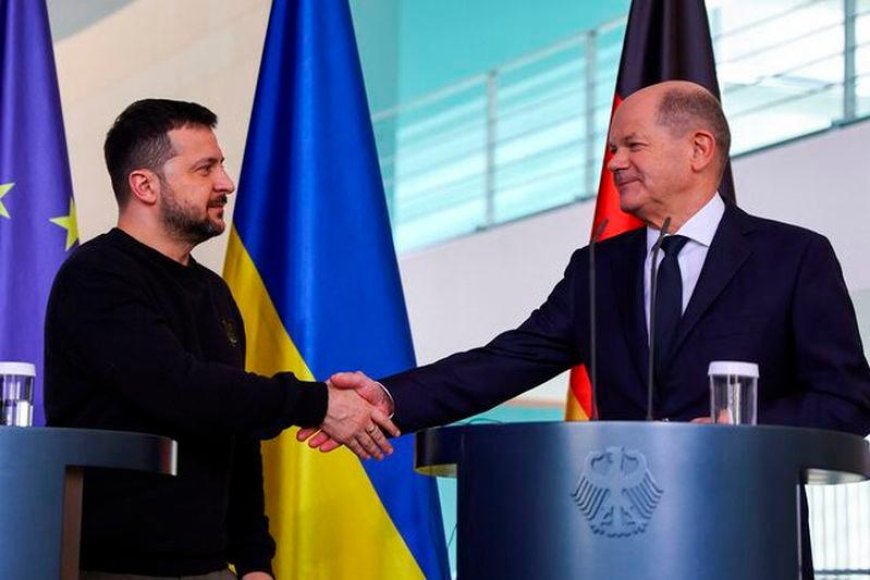Germany to Halve Military Aid to Ukraine Amid Concerns Over U.S. Support

Germany plans to reduce its military aid to Ukraine by half next year, despite concerns about the potential decline in U.S. support for Kyiv if Republican candidate Donald Trump returns to the White House. According to a draft of the 2025 budget seen by Reuters, German aid to Ukraine will decrease from approximately $8.7 billion in 2024 to $4.35 billion in 2025.
German officials are hopeful that Ukraine will be able to meet most of its military needs with the $50 billion in loans approved by the Group of Seven (G7) from the proceeds of frozen Russian assets. These funds are expected to significantly contribute to Ukraine's military capabilities, alleviating the need for additional direct aid.
"Ukraine’s financing is secured for the foreseeable future thanks to European instruments and the G7 loans," German Finance Minister Christian Lindner stated during a news conference. The U.S. has advocated for front-loading the loans to provide Ukraine with substantial financial support now, which would mitigate the risk of funding shortfalls should Trump be re-elected.
This decision comes amid heightened concerns in Europe following Trump’s selection of Senator JD Vance as his vice-presidential candidate. Vance, known for his opposition to military aid for Ukraine, has warned that Europe might need to become less reliant on U.S. defense support.
Germany has faced criticism for consistently missing NATO's defense spending target of 2% of GDP. The country’s military resources have been further strained by its support for Ukraine. Berlin has donated three Patriot air defense units to Kyiv, more than any other country, reducing the number of Patriot systems in Germany to nine.
Germany’s coalition government, composed of left-leaning Social Democrats, pro-business liberals, and ecologist Greens, has struggled to meet NATO’s spending goals due to strict limits on state borrowing. Despite the planned reduction in aid to Ukraine, Germany will meet the NATO target of spending 2% of GDP on defense in 2025, allocating a total of $82.3 billion.
Following Russia’s invasion of Ukraine in 2022, Chancellor Olaf Scholz announced a “Zeitenwende” or historic turning point, with a 100 billion euro special fund to modernize the military. From this fund, $24 billion will be directed towards defense, alongside $58.3 billion from the regular budget. However, this still falls short of the amount requested by Defense Minister Boris Pistorius.
The defense budget will see only a $1.4 billion increase from 2024, significantly less than the $7.3 billion Pistorius sought. Rising annual operating costs are forcing the defense ministry to cut ammunition orders for 2025 by more than half and reduce procurement and research and development funding.
The 2025 budget also includes financial planning through 2028, by which time the special fund for meeting NATO’s spending goals is expected to run out. By then, $87 billion will be needed for defense, leaving a significant budget gap.
“There is a gap of $42.6 billion in the regular budget for 2028, with $30.6 billion needed to meet NATO targets without the special fund,” sources from the finance ministry indicated. Decisions on addressing this shortfall are expected post-2025 elections.
"The 80 billion euros that have been put on display for 2028 simply do not exist," remarked Ingo Gaedechens, a member of the parliament’s budget committee from the conservative opposition party CDU. "The coalition is not even trying to cover this up but are openly admitting it."
Germany’s decision comes as Western allies continue to navigate the complex dynamics of international support for Ukraine amidst ongoing tensions with Russia. The reduced military aid highlights the challenges faced by European nations in balancing domestic fiscal constraints with international defense commitments. As the geopolitical landscape evolves, the sustainability of such support remains a critical issue for both Ukraine and its allies.













































